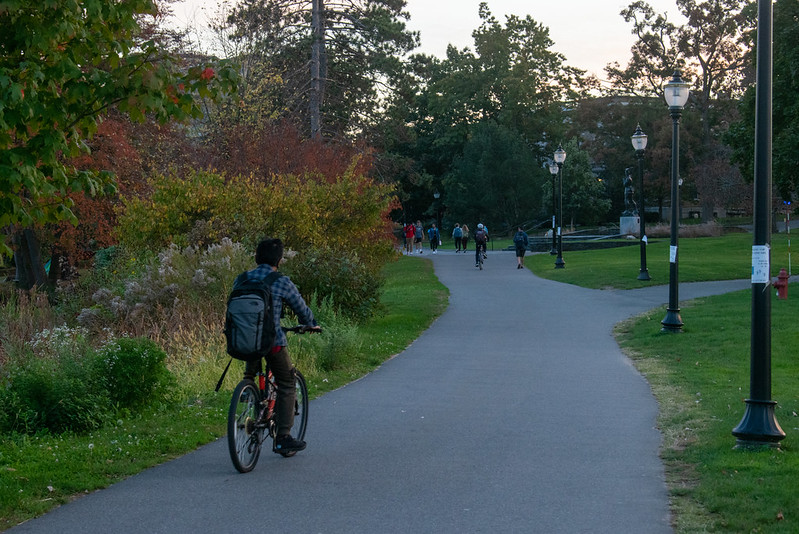It’s surprising how much a coronavirus cell can do to my life. Between social distancing for over a year, giving me mask-ne, and shutting down the U.S. economy to a point that even the best Isenbro couldn’t recover it, COVID-19 has changed a lot. One of the most surprising changes, though, was education. Schools, on a systematic level, began curtailing themselves around students’ safety and educational wellbeing: offering easier exams, Zoom lectures and more lenient deadlines. This new culture of education was something that I could get used to, and, unfortunately, I did.
Students around the world got used to this new education system. If a class is online, you don’t have to get out of bed to go. When the exams are online, studying becomes a lot easier. As such, students didn’t have to maintain rigorous study habits for the entire year that school was online. They could just go to class, learn and study enough to get the grade that they wanted with relative ease. While this new normal was great, the harsh reversion to traditional education has become problematic.
In Massachusetts, 69 percent of residents are vaccinated, and our population is on the road to recovery from the pandemic. This hopefulness caused universities, including UMass, to switch back to the usual educational practices: in-person midterms and finals, assignments with stark due dates and none of the leniency and understanding that we saw last year. Recovery isn’t black and white, and Universities cannot expect students to keep up with the harsh transition back to pre-COVID-19 educational standards. Some students cannot keep up.
Education cannot be done perfectly, but there’s certainly better ways to account for the intricacies of this pandemic’s impact on students’ mental health. Hampshire College promotes an education environment that, “encourages cooperation and learning.” Similarly, Sarah Lawrence College utilizes written evaluations of performance rather than obscure lettered grading. The point is a learning environment that switches expectations faster than Massachusetts weather is delusional in its goal of optimizing learning for students.
This isn’t an isolated incident, it affects all students of all ages. This problem is only going to snowball in future years. A multitude of studies have pointed out that learning during the pandemic has set us back. Students are “to lose five to nine months of learning by the end of this school year.” Every single student has a major gap in their education as a product of this pandemic, yet UMass is pretending like nothing ever happened. Nine months of lost learning certainly is providing drawbacks for me as a student, and I’m surprised that it’s such an elephant in the room.
I think it’s time that the University stops making performative, rash decisions. Instead, it should optimize what is best for its students. If education is going to be supportive of students’ mental health, it needs to be reactive to international events that set us back. It may be too late into the current semester, but moving forward, the University should make it a high priority to contextualize what it feels like to be a student right now, facing the whiplash of classroom changes.
Conor Johnston can be reached at [email protected].




















Ronan Fitzgerald • Nov 2, 2021 at 11:11 am
Sarah Lawrence represent!